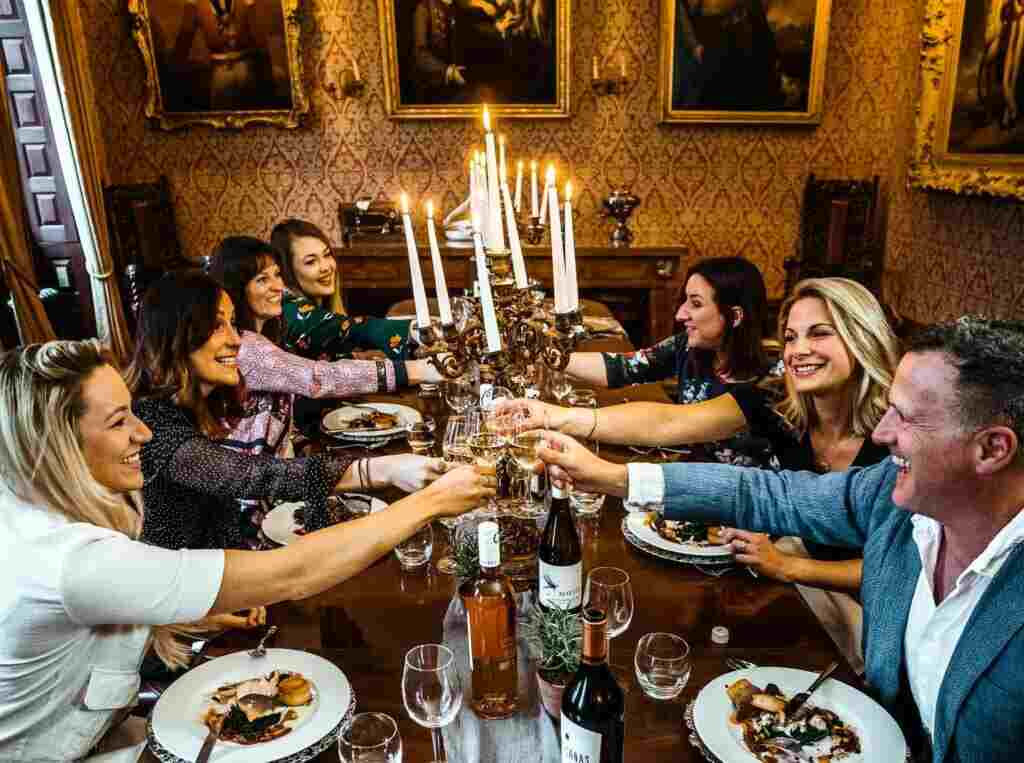In this age of global corporate travel and increased global mobility, it’s important to be conscious of the various cultures and customs of the places you travel to.
Different countries and cultures welcome and honour guests in a great variety of ways. In Kurdish culture, for example, people believe that ‘guests bring good luck with them’. In China they say ‘those who are not friendly towards a good guest will never have one’. A famous Nepali belief is that ‘guest is god’.
Some cultures have colourful and interesting rituals for when guests first arrive. For instance, many countries in South Asia welcome guests with a garland of flowers and a tilak of vermillion powder placed in the centre of the forehead.
Welcome rituals often involve food and drink. In Ethiopia, the coffee ceremony is a part of people’s daily life, but it’s also a traditional way to welcome guests. The host will sweep the area where the guests will sit, and scatters it with sweet grasses and flowers. The host then takes the raw coffee beans to roast, grind, and brew in front of the visitors. Guests enjoy three rounds of coffee, with each one having a particular significance.
Eating Together
Food is a traditional way to honour guests the world over. If your host invites you into their home to eat, or to a business dinner, perhaps find out in advance about what might happen during the occasion. For example, in Germany typically you only start eating once the host has said it’s time to begin, maybe by declaring ‘Guten Appetit!’.

Courtesy Sebastian Coman – Unsplash
In the Czech Republic, you may be offered snacks and slivovitz (a type of fruit brandy) or a soft drink. Your host will always make sure to pour your drink and fill your plate for you: not to do so would be considered impolite. The host will serve the guests first and gives them the biggest portion of food.
In some cultures in South Asia the host serves substantial snacks. This is the main part of the evening where people socialise. Dinner is served late, and everybody leaves straight after. This is unlike the UK where dinner is the main part of the evening.
There are also specific customs in different countries around finishing your food, in Nepal for example. If you clear your plate here, this means you haven’t eaten your fill and you’ll get a hearty top-up! If you’re full, it’s good manners to hold your right hand palm-down over your plate.
Etiquette and the global corporate traveller
Global corporate travel means we are increasingly connected to our colleagues and others the world over. And as a business traveller to another country, it’s often wise to brush up on your knowledge of local customs and etiquette. As well as not causing inadvertent offence, a certain level of cultural competence can also often lead to a deeper and more enriching experience.
For instance, there are many customs around whether or not to wear shoes indoors. Sometimes it’s customary to remove your outdoor shoes before entering someone’s home — or even a restaurant. In this case your host may offer you a pair of slippers to wear inside. Another thing to consider is what to take as a gift: perhaps sweets, flowers, or something else would be welcome.

Time-keeping can be another custom that you might need to think about. In many places, you should arrive for dinner at the appointed time. In others, it’s polite to turn up a little later. Language is additional area where you can prepare in advance: it’s very satisfying to use the local language for simple things like greetings and goodbyes.
Self-sufficient in a serviced apartment
Understanding local customs is likewise important when you are out and about on your own. Being part of the global corporate travel scene often means being self-sufficient, yet this can be a great adventure and can help you really appreciate the local culture. If you’re visiting a country and staying in your own space, perhaps one of Situ’s serviced apartments, you’ll have the flexibility to cook for yourself. Maybe find out where to buy the best local produce and whip something up in your fully-equipped kitchen.
Whether you’re visiting a country for a short time or have planned a longer trip, staying in one of Situ’s serviced apartments as a business traveller can really help you make the most of your time away. Wherever you are in the world, having the space and flexibility of a serviced apartment will give you a tranquil home-from-home while you forge those connections that make business — and life in general — so much more interesting.

